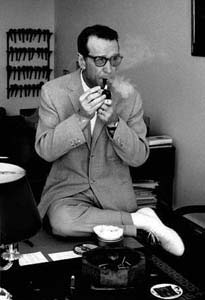The concept of making sure to have certain experiences before you die has been on my mind lately. When I was little, I used to panic at the decisions that faced me when I grew up–how would I have time to focus on all the things I wanted to do with my life? As I got older, I began to worry about all the books I would never read, and occasionally I worry about all the places I won’t ever get to. But then I remember: it doesn’t really matter, because when I get to heaven, everything good in those places and those books and those experiences will be there. I won’t have missed out. I do believe that everything good on earth will be there in heaven, only more so. But does this mean that I shouldn’t worry about living life to the fullest?
If you don’t believe in heaven, of course, there’s no question; this life is all you have, so better make the most of it. I don’t know how people who don’t believe in life after death go on living. It’s so bitterly unfair. Some people get to travel the world; some people stay in the same town their whole lives. Some people live a long and happy life; some people die in the womb. Some people enjoy life with all five senses; some people are blind. I don’t want to believe in a world where that’s all there is to it.
But I also don’t want to believe in a world where, just because there’s life after death, life before death doesn’t matter. After all, God made the world beautiful for a reason. Everything that’s beautiful about the mountains will be in heaven, I’m sure of it; but God made mountains on Earth too, just for us.
I’m halfway through Anna Karenina and my beloved Levin, after encountering his dying brother, has just been consumed with thoughts of his own inevitable death. Suddenly he realizes that all his grand plans, his brilliant ideas for revolutionizing agriculture and society, crumble into dust compared to the vastness of the universe. And because he’s an all-or-nothing kind of guy, every time he thinks about it he decides that he’s completely done with life, and there’s no point in striving for anything. At the same time, though, he’s on the brink of consummating his deep love for Kitty, and he gets very flustered when he tries to reconcile these two parts of himself. Nothing in life is worthwhile, because it all ends in death; but at the same time, everything is beautiful, everything is precious, simply because it exists in the same world as Kitty Shcherbatsky.
Because of our faith, we can reconcile Levin’s dilemma. We can see the good in the world, without denying the fact that the world is fading away. We can enjoy a trip to Rome, without weeping over the fact that we’ll probably never get to India and Mexico. But there’s still an elusive balance to be found here. How much effort should we put into enjoying life? We all know it’s risky to love creation more than the creator; but isn’t there also a risk to ignore the beauty that God created just for us? I don’t fully understand God’s reasons for putting us here with the time and the capacity to enjoy so much. But there must be a good reason that God created the Earth as well as heaven! Next time I’m feeling fatalistic I’ll try to remember that God wants me to enjoy this old Earth right now, instead of just waiting for the new one.






